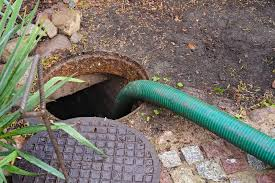What is the Difference Between a Cesspool, a Septic Tank, and Sewage Treatment Plants?
Although all of these are designed to receive and hold sewage, what happens afterward is the differentiating factor between these three. These are three main sewage and wastewater treatment systems that are used for the removal of sewage and wastewater in residential houses as well as commercial buildings. Here is an insight into all three of these:
- Cesspool - This is basically an underground tank that collects and stores sewage upon its removal from any particular property. The sewage and wastewater are not processed at all. Hence, no effluent is passed onto the environment. This is why a cesspool fills up quickly ad requires regular emptying. You should empty it on a monthly basis. They may cost a little more than the other forms of sewage disposal but are extremely effective in doing their job.
- Septic tanks - The job of a septic tank is not to simply store waste. It is to process the waste and produce an effluent, which is then digested further using natural, biological processes. If we talk about a typical septic tank, sewage and wastewater are fed through from the property to the septic tank. These solids settle in the bottom of the tank while the liquid components are pumped out into a soak away. If you’re wondering what a soak way is, it is basically a series of underground pipework which disperses the liquid effluent from the septic tank into the soil, where naturally occurring aerobic bacteria breaks down the remaining waste. It should be noted that there are a lot of stringent rules regarding the use of drainage fields, and the land concerned is supposed to pass a test in order to install a soak way. Even if all the tests are cleared, installing a soak way is a challenge in itself. There are a lot of regulations on where they can be placed. They must not be too close to buildings, boundaries, or watercourses, be away from electrical cables or pipework and not be part of a road, driveway, or other area where vehicles could pass over it and cause damage.
- Sewage treatment plants - These are a highly efficient and low polluting method of removing waste. They break down waste before pumping out a roughly 95% clean effluent, which is considered to be safe to be discharged into a ditch, stream, or another watercourse. Sewage treatment plants work in different ways. One benefit of choosing sewage treatment plants over a septic tank is that these do not have to be emptied as often as a septic tank.
Affordable Cesspool Service takes care of all the needs that are related to cesspools. From installation, maintenance, services to repairing, everything is covered by this company. They have been known for providing the best sewer rooter in Franklin Square and cesspool service in Roslyn. If you’re looking for a sound sewer rooter in Hicksville, this is the brand you should go for. Their expert team is well-equipped to handle all the issues that a residential house or building may encounter.
Also Read: Why Regular Cleaning Of A Grease Trap Is Required






Comments
Post a Comment